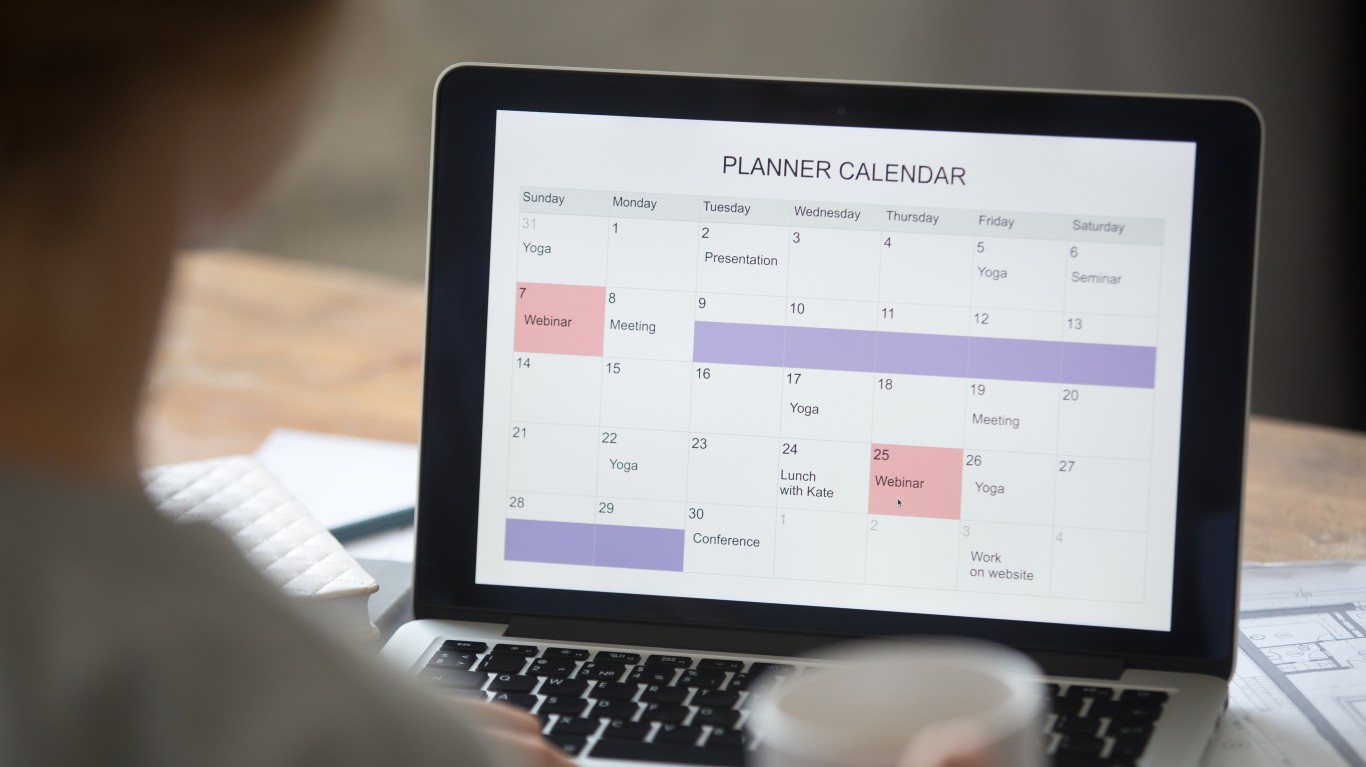

We are now in the second work week and first full week of the new year. Chances are many people are still struggling with getting back to the grindstone.
The memories of presents, socializing, and laughing are still fresh, but the piles of unfinished work at the office and the thousands of unread emails are slowly, but surely, taking over. If you’re going to survive, you need a few tricks, and quickly.
Dealing with the mountains of work — minus the holiday cheeriness or another day off in the near future — is not impossible. There is no need to turn to drastic measures, such as quitting your job.
It may help to think of your “new” old reality in terms of what you no longer have to do: no more social obligations or time with relatives who insist on talking about politics. All you need is a positive attitude and a few strategies for your “plan of attack.” Introduce them into your daily routine over the next couple of weeks to ease into the transition back to work.
Click here for 11 quick ways to fight the post-holiday slump.

1. Make it a short week
This year was a great example of starting slowly because, for many, the first work day of 2019 fell on a Wednesday. But it’s OK if you need more time. Pace yourself. Trying to complete the impossible task of replying to hundreds of messages and starting new projects in the first week back can be overwhelming. So take a day from your “personal days” or “vacation” bank and ease yourself back into the regular routine.
[in-text-ad]

2. Get as much sleep as you can
You’re not going to get out of that slump if you have no energy. Sleep is seriously underrated — one in three adult Americans are sleep-deprived. If you don’t get enough ZZZs, you could experience brain fog and an inability to focus, think clearly, and learn, as well as more physical signs, such as sallow skin and puffy eyes.

3. Get yourself a special treat
It’s the little things that make you happy, right? So make your morning coffee extra sweet — or extra bitter if that’s your thing — and have two donuts, instead of one. (If you made New Year’s resolutions to lose weight, you probably know that going cold turkey is a terrible idea anyway.) If you like listening to music, go wild and play some at the office (but use your headphones, of course).

4. Go to work a little early
This doesn’t have to contradict the tip to get enough sleep. Just go to bed even earlier. It may help you to catch up on emails and work without being distracted by colleagues’ never-ending stories about how “awesome” their holidays were. Once you get into your groove, few things will be able to divert your attention.
[in-text-ad-2]

5. Be gentle with your schedule
You may have the kind of job that requires you to meet a lot of people in person or via Skype. Make sure you don’t overcommit. Your first few days back are guaranteed to be very busy. Keep that in mind when you put an hour-long interview on your calendar. Trying to cram in too many duties will surely make you feel overwhelmed. If you have to submit reports by a certain deadline, make it next week.

6. Avoid alcohol and caffeine before bed
Contrary to popular belief, alcohol does not make you sleep better. You may fall asleep faster but you won’t get as much REM sleep, which is the restful stage of the sleep cycle, and is also the kind the really counts. In addition, side effects of alcohol include sleepiness and a lack of focus.
Caffeine is not much better. If you drink it in the morning to wake you up, why would you drink it at night? Some studies have found evidence that caffeine taken as much as six hours before bedtime has a significant disruptive effect. Caffeine, which is a stimulant, is among the biggest enemies of sleep, blocking sleep-inducing chemicals in the brain.
[in-text-ad]

7. Bring a souvenir
Why do people buy souvenirs when they go on vacation? In addition to giving them as dust-collecting presents, people also like to be reminded of what a wonderful time they had. The same logic applies to bringing something to work that reminds you of the holiday season. It can provide a quick mental break from your hectic schedule.

8. Start planning next vacation
Whatever works, right? If doing your job well means spending time thinking of where you’d rather be, so be it. In all seriousness, planning time off has been associated with increased happiness. Don’t underestimate the power of anticipation. It makes you happier and more likely to control your impulses, as some research suggests.

9. Exercise
You just can’t escape the fitness craze starting the new year. If you don’t exercise for your physical health, do it for your mental health. Go for a walk during your lunch break or, better yet, go to the gym or the park for a quick workout. It will help improve your mood, relieve stress, reduce fatigue, and increase alertness, according to research. That could help you get through the day quicker.
[in-text-ad-2]

10. Get outside
As if you needed another reason to take a walk…What’s better: taking a few five-minute breaks or sitting in front of your computer for hours working on a goal-oriented project that you’ll have to spend even more time on fixing as a result of being overwhelmed because you didn’t take any breaks? Relaxing breaks help with productivity and creativity, prevent decision fatigue, and restore motivation.

11. Clean up your desk
The reason you can’t get anything done may have nothing to do with the holidays; it may be because of your messy desk. Clutter is killing your focus, according to a study conducted by the Princeton University Neuroscience Institute. The chaos around you provides too much visual stimuli, making it difficult to process information.
Essential Tips for Investing: Sponsored
A financial advisor can help you understand the advantages and disadvantages of investment properties. Finding a qualified financial advisor doesn’t have to be hard. SmartAsset’s free tool matches you with up to three financial advisors who serve your area, and you can interview your advisor matches at no cost to decide which one is right for you. If you’re ready to find an advisor who can help you achieve your financial goals, get started now.
Investing in real estate can diversify your portfolio. But expanding your horizons may add additional costs. If you’re an investor looking to minimize expenses, consider checking out online brokerages. They often offer low investment fees, helping you maximize your profit.
Thank you for reading! Have some feedback for us?
Contact the 24/7 Wall St. editorial team.

